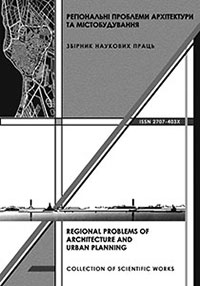Етичні обов’язки членів редакційної колегії та рецензентів |
|
• Після анонімного (сліпого) рецензування членами редакційної колегії, збірник публікує статті, які містять результати наукових досліджень впровадження нових результатів фундаментальних і прикладних досліджень у галузі будівництва та цивільної інженерії. • Всю відповідальність за прийняття або відхилення рукопису несе редактор, який підходить до виконання цих обов’язків зважено та уважно, приймаючи до уваги рекомендації рецензента (доктора наук відповідного наукового спрямування) стосовно якості та достовірності рукопису, поданого до редакції. Також рукописи можуть бути відхилені без рецензування, якщо редактор вважає, що вони не відповідають профілю збірника. • Редактор, члени редколегії не повинні надавати доступ іншим особам до будь-якої інформації щодо змісту рукописів, які находяться на розгляданні, окрім осіб, задіяних у професійному оцінюванні даного рукопису. Після одержання позитивного відгуку рецензента та редактора стаття може бути опублікована в збірнику та розміщена на відповідних електронних ресурсах. • Відповідно до міжнародного законодавства стосовно захисту авторських прав на електронні інформаційні ресурси, матеріали сайту, електронного збірника, або проекту не можуть бути відтворені повністю або частково у будь-якому вигляді (електронному або друкованому) без попереднього письмового узгодження авторів і редакції збірника. Використання матеріалів збірника в контексті інших документів повинно супроводжуватись обов’язковим посиланням на першоджерело. Забороняється видання та/або розповсюдження матеріалів збірника третіми особами або організаціями на паперовому чи електронному носії. З метою запобігання використовування авторами оригінальних матеріалів третіх осіб без зазначення їх як співавторів або згадування наприкінці статті, під час виказання подяки, та уникання ситуацій включення у співавтори осіб, маючих авторитет у сфері наукових інтересів автора, але непричетних до написання роботи (так звані «ghostwriting» та «guest authorship»), редколегія та редакційна рада мають право запросити детальну інформацію щодо участі й внеску кожного з авторів у написання статті та її окремих складових (ідея, передумови, методи, експериментальні дані тощо). У разі виявлення вищезгаданих фактів редколегія зобов’язана сповістити відповідні інстанції та наукові товариства, де автор працює або є членом. • Рецензент повинен своєчасно надавати відгук на статтю із чітко зазначеним висновком щодо рекомендації статті до друку. У разі наявності у рукопису недоліків, які можуть бути усунені, рецензент повинен окреслити коло питань, які потребують доробки, та сповістити про це редактора; рукописи можуть бути подані на повторне рецензування після усунення вказаних недоліків. |
Етичні обов’язки авторів |
|
• Статті, що надсилаються до редакції, мають бути оформлені згідно з вимогами збірника. • Вчений має право та обов’язок захищати свій науковий пріоритет. Разом з тим, публікація неточних і непереконливих наукових результатів, а також публікація в ненаукових виданнях з метою досягнення пріоритету, неприпустимі . • Учений визнає міжнародні та національні правові норми щодо авторських прав. Він може використовувати інформацію з будь-яких публікацій за умови, що вказує джерело та проводить чітку межу між власними даними та здобутками інших. Запозичення для власних публікацій будь-яких фотографій, рисунків, таблиць, схем тощо потребує, згідно з видавничими правилами, дозволу автора або видавництва. • При публікації результатів дослідження, що проводилося групою вчених, всі, хто брав творчу участь у роботі, мають бути зазначеними як автори; у разі необхідності може бути зазначено їхній особистий внесок. Тільки реальний творчий внесок у наукову роботу може слугувати критерієм авторства. • Використовувати оригінальні матеріали третіх осіб без зазначення їх як співавторів або при висловлюванні подяки наприкінці статті, поступатися авторством на наукову роботу іншій особі, приймати авторство або співавторство та, особливо, вимагати його є неприпустимим. Також неприпустимо включати у співавтори осіб, маючих авторитет у сфері наукових інтересів автора, але непричетних до написання роботи. У разі виявлення вищезгаданих фактів, автор несе відповідальність перед трудовими на науковими колективами, членом яких він є. • Учений не повинен повторювати свої наукові публікації з метою підвищення їх кількості. Якщо для пропаганди наукових досягнень доцільна публікація однієї і тієї ж роботи в різних журналах, редактори останніх повинні бути поінформовані про факт публікації в інших виданнях. • Учений повинен бути об’єктивним в оцінці власних досягнень. Преса, радіо та телебачення можуть бути використані для пропаганди наукових досягнень, але не власної особи. При публікації роботи вчений підпорядковується вимогам видавця, але бажано, щоб наукові ступені та звання автора не були вказані. Така інформація може бути подана у примітці. |
Рецензування статей |
|
Рецензування статей виконується незалежно двома докторами технічних наук або одним доктором наук, якщо співавтором статті є доктор наук або професор. Одним із рецензентів обов’язково є український або закордонний член редколегії збірника. Рецензент у письмовій або електронній формі представляє в редакцію рецензію, в якій підтверджує відповідність статті вимогам, можливі зауваження та висновок щодо прийняття статті до публікації або її відхилення. Форма рецензії наведена нижче, в ній містяться критерії, за якими стаття приймається або відхиляється. Для авторів статей рецензія анонімна, прізвища рецензентів не вказуються у випусках збірника. Термін рецензування складає не більше двох тижнів. Зауваження рецензентів, що потребують виправлення, пересилаються авторові відповідальним секретарем збірника. Відповіді автора і виправлений варіант статті знову пересилаються рецензентові. Стаття може бути опублікована тільки за наявності двох позитивних рецензій. |
Адреса
вул. Дідрихсона, 4, м. Одеса, 65029
Одеська державна академія будівництва та архітектури (ОДАБА)
| Тел: | (067) 559-12-99, |
|---|---|
| (050) 415-56-08 | |
| Email: | axi.pnam@gmail.com |
